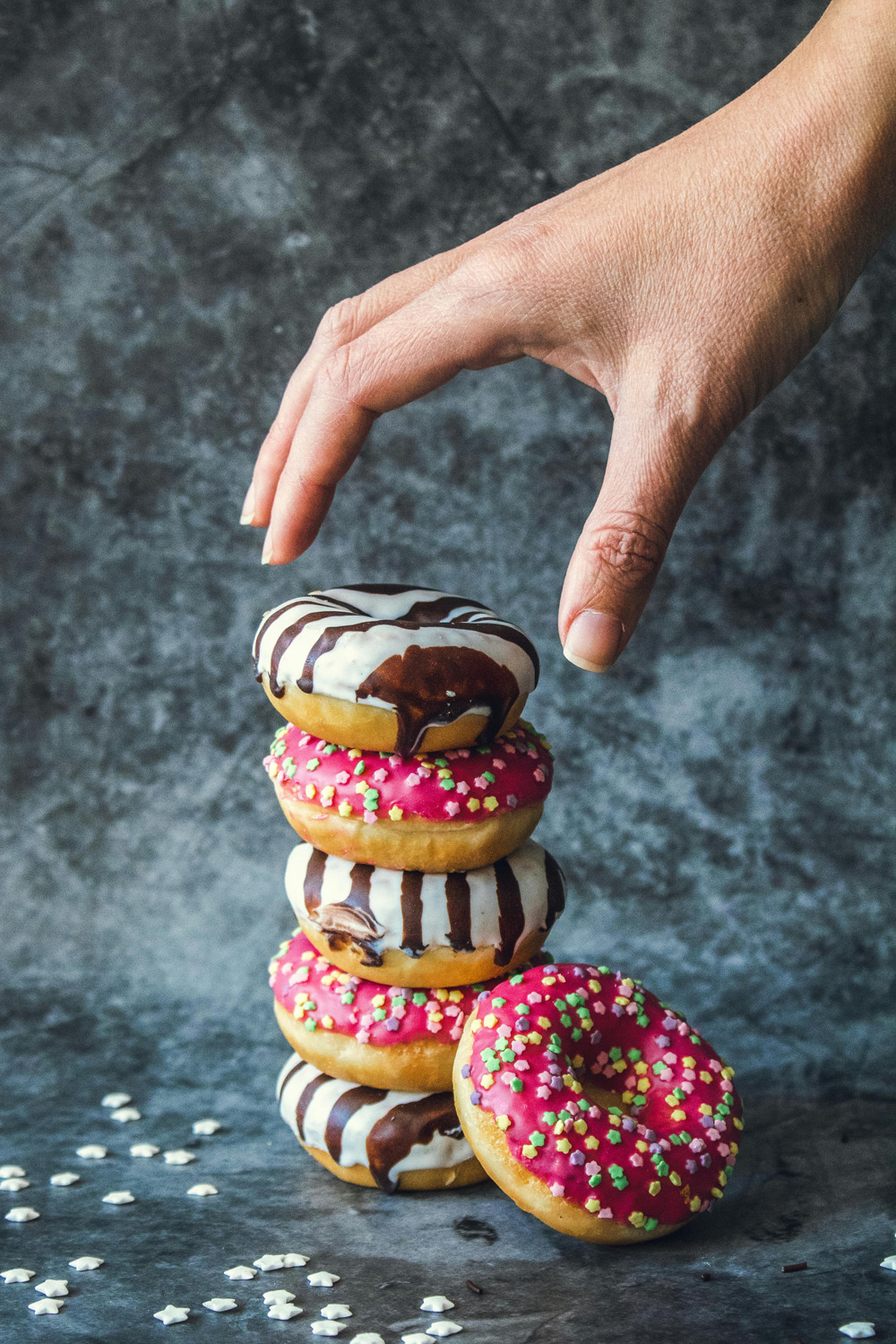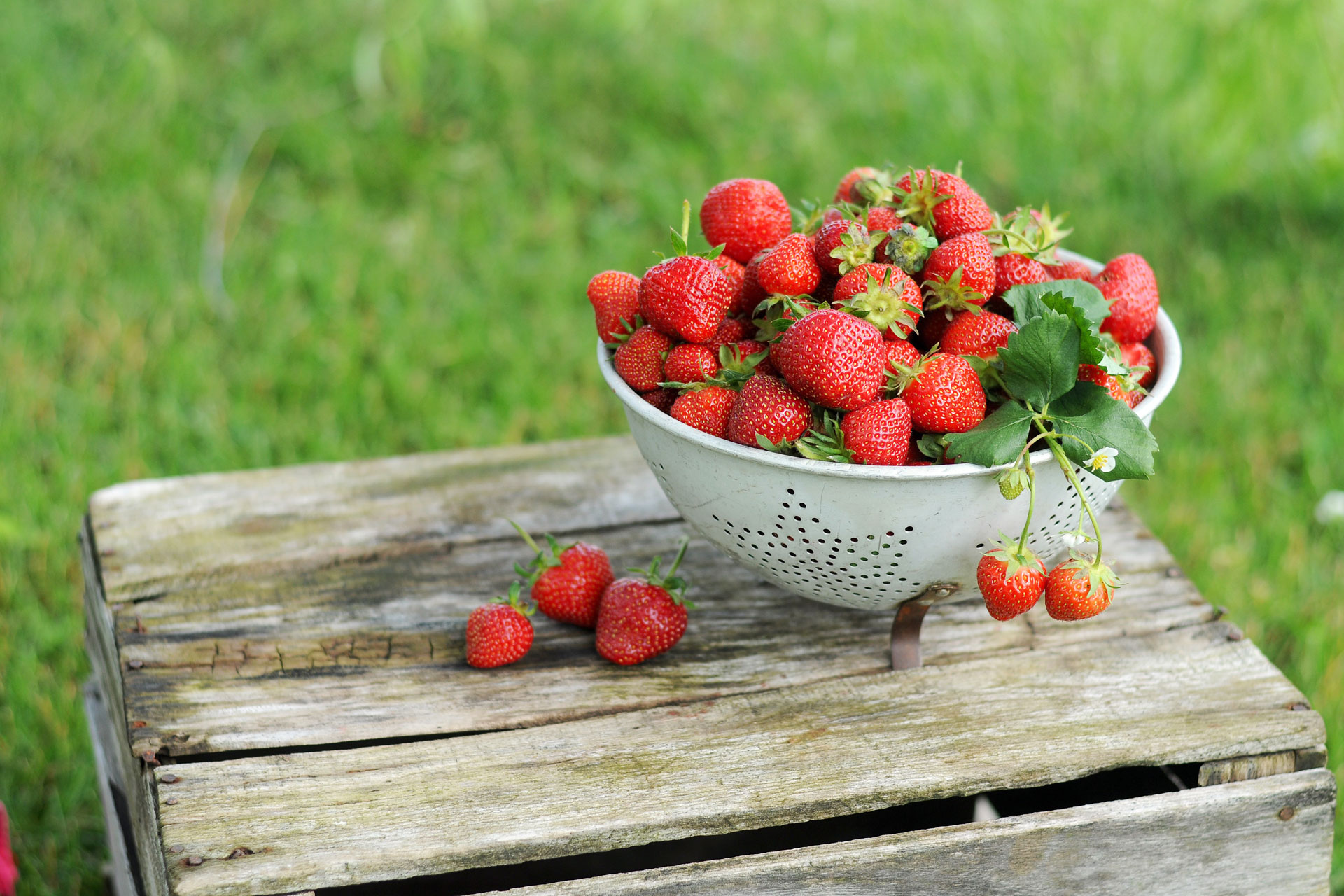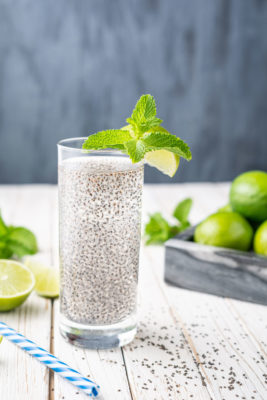
Why Do We Crave Sugar?
By
2 months ago
Nutritionist-approved ways to curb your cravings
Are you finding yourself craving more sweet treats than usual right now? You’re not alone: Google searches for ‘constant sugar cravings’ have skyrocketed by 5,000 percent across the UK this month. It’s common for sugar consumption to go up during the winter months, but if your cravings feel out of control, there could be an underlying reason. Here we break down the science behind sugar cravings, plus what you can do to reduce them, with the help of nutritionist Lily Keeling from recipe box delivery service Green Box.
4 Reasons You Might Be Craving Sugar
Glazed doughnuts, aesthetic bowls of fizzy sweets, freshly baked chocolate chip cookies: often high-sugar foods just seem to scream ‘eat me’. And of course there’s nothing wrong with a treat from time to time, but if you’re craving something sweet after most meals, it could be a sign you’ve developed a reliance on sugar, says Keeling.
‘There are several reasons why you might be craving sugar, and if you’re concerned about your intake, I’d always recommend consulting a doctor or nutritionist,’ she notes. ‘They can check for underlying issues such as insulin resistance or a hormone imbalance.’ There are, however, some common factors that could be at play.
Tiredness
Struggling to get a good night’s kip? That might be why you’re reaching for a sugary breakfast come morning time. Studies have shown sleep deprivation leads to an increase in the hunger hormone, ghrelin, making us crave higher calorie, sweeter foods, as well as decreasing levels of the appetite-suppressing hormone, leptin.

(c) Pexels
The weather
Many people find they crave sugar more than normal during the winter months. There are scientific reasons behind this: firstly, a drop in temperature can intensify our hunger levels, as the body has to work harder to maintain warmth. Evolutionary factors also play a part: colder temperatures may signal to our hunger-gatherer brains that there’s less food available, encouraging us to consume more energy-dense foods. People suffering with seasonal affective disorder (SAD), meanwhile, often crave sugary foods as a way to soothe negative feelings.
Stress
In a similar vein, many people turn to sugary comfort foods when they feel stressed or anxious. This can be a result of increased cortisol levels (the stress hormone) which can in turn trigger a surge in ghrelin. Low serotonin levels can also cause us to reach for sugary snacks for a quick mood boost. There’s also some evidence to suggest stress eating is more common in women.
Poor gut health
Scientists have found your gut health may be partly to blame, too. A study from 2022, carried out by researchers from the California Institute of Technology (Caltech) looked into how the gut microbiota influences consumption of sweet or fatty foods in mice. The evidence suggested the absence of certain key gut bacteria may cause mice to binge-eat palatable foods.
How To Reduce Sugar Cravings
Limit artificial sweeteners
Keeling advises against swapping sugar for artificial sweeteners, citing research from the World Health Organisation, which found that artificial sweeteners may not be effective for weight loss and long-term use could lead to an increased risk of type 2 diabetes, along with other health problems.

Opt for intrinsic sugars
Focusing on naturally occurring rather than added sugars can be a good way to feed your sweet tooth, she adds. ‘Fruits, packed with intrinsic sugars along with other vital nutrients, are a better alternative to ultra processed foods with added sugar that are often used to satisfy cravings. Make sure to take fruit with you as snacks throughout the day and discover new ways to incorporate it into your everyday meals.’
Reconsider your diet
A diet high in processed foods and carbohydrates can lead to increased sugar cravings, so Keeling recommends reconsidering your diet to ensure you’re getting the right nutrients. She recommends prioritising a balanced intake of protein, fats, carbohydrates and fibre, which work together to keep blood sugar levels stable.






